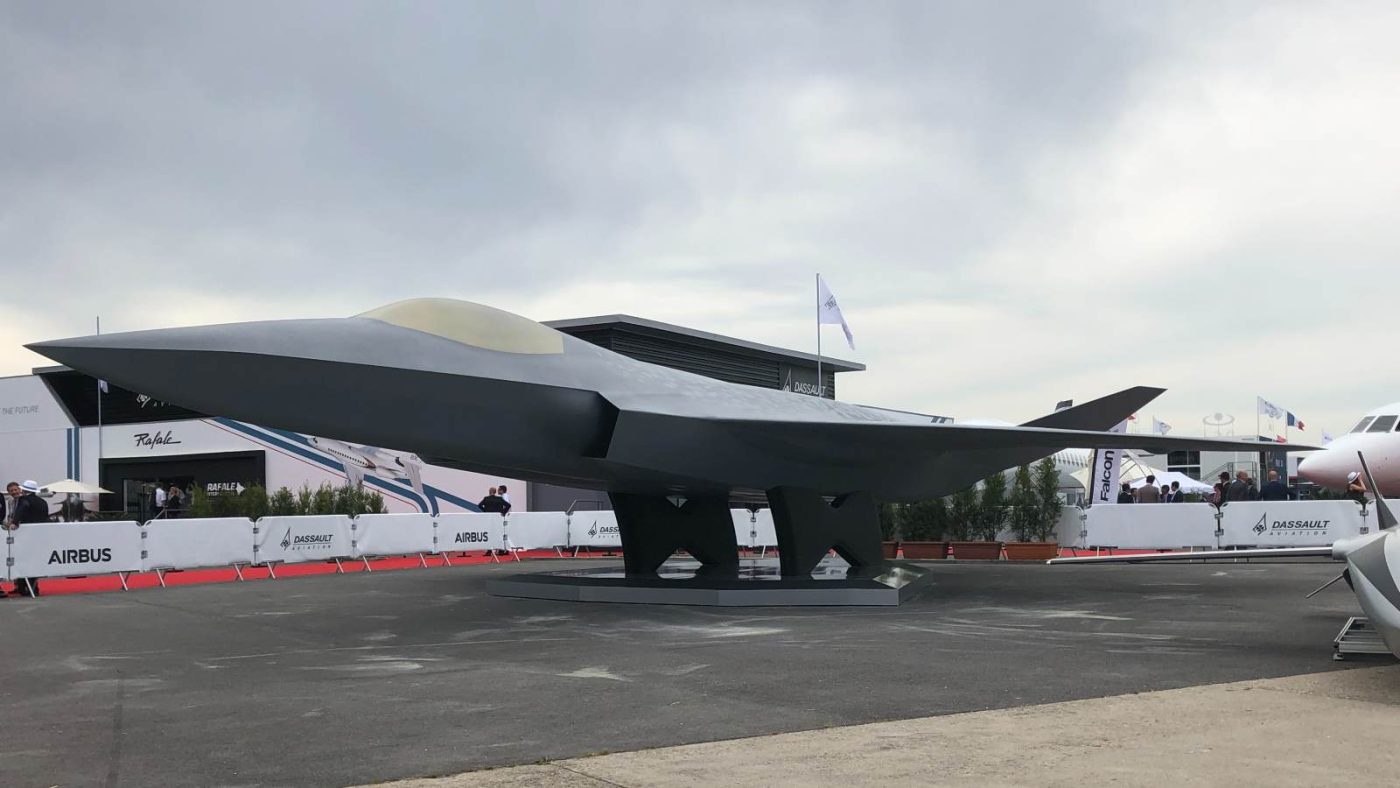Once hailed by French President Emmanuel Macron as a “deep revolution” in European defense cooperation, the Future Combat Air System (FCAS) now appears to be in trouble.
Persistent disagreements over workshare and intellectual property rights have stalled the progress of the Franco-German-Spanish warplane project, jeopardizing a key effort to consolidate Europe’s fragmented defense technological and industrial base.
The FCAS impasse is the latest illustration of the significant roadblocks on the path to Europe’s much-discussed yet largely unrealized ambition of strategic autonomy. While the idea of complete independence from the United States elicits concerns from many Americans as well as Europeans, without some greater degree of autonomy Europe risks becoming increasingly unable to bear responsibility for its own defense as the U.S. continues shifting its attention toward the Indo-Pacific.
Work on the FCAS began in 2017, after France and Germany signed a deal to jointly develop a next-generation fighter jet (Spain joined in 2019). This timing was no coincidence — spurred by worries of possible U.K. and U.S. retrenchment following Brexit and the election of Donald Trump in 2016, the project represented a conscious effort to bolster the European Union’s strategic autonomy, or its ability to defend itself independently. By creating a single replacement for the rival Rafale and Eurofighter jets, the FCAS would reduce intra-EU competition, help to harmonize national defense planning and capability development processes, and increase interoperability across member states. (The UK is meanwhile working on the rival Tempest sixth generation combat aircraft).
Consolidation of the defense technological and industrial base has been one of the major objectives of the EU’s Common Security and Defense Policy in recent years. Former European Defense Agency chief Jorge Domecq explicitly linked the consolidation process with strategic autonomy, arguing that “defense cooperation is not an option but a necessity” for achieving this goal. Along these lines, the EU has recently implemented various new initiatives such as Permanent Structured Cooperation (PESCO), the European Defense Fund, and a Capability Development Plan. The FCAS is just one example of this broader push toward more cooperative capability development within Europe.
Unfortunately, progress on the joint fighter has reached a familiar impasse. At the beginning of February 2021, negotiations on a contract for the next phase of the project fell through, stalling development indefinitely. Two issues in particular elude agreement: division of labor and intellectual property rights. On the one hand, French contractor Dassault has demanded 50 percent of the total workshare, seeking to remain the dominant player on the project against the wishes of Airbus, its German partner on the FCAS. On the other hand, Airbus has pushed for full access to Dassault’s technology, lamenting a lack of transparency. Dassault executives, however, insist that protection of intellectual property is standard procedure for such sensitive military projects, pointing for instance to the United States’ lack of transparency in developing the F-35. To date, neither side has budged – and there appears to be no backup plan. In fact, divisions are so entrenched that each country is now reportedly considering building its own demonstrator aircraft, rather than collaborating to develop one.
This dispute boils down to a fundamental lack of trust between Berlin and Paris. As Dassault CEO Antoine Bouvier explained in March 17 testimony before the French Senate: “Some Germans think the French want to build a French airplane with German money, while some French people think the Germans want to steal trade secrets and build a weapon of their own.” These persistent national biases converge with strong instincts to protect domestic business interests (particularly in Germany), undermining the type of supranational cooperation that is essential for any successful efforts to achieve European strategic autonomy.
This trend is evident across Europe’s entire defense industrial sector. The first EU Coordinated Annual Review on Defense, released in November, revealed a dismal lack of progress toward consolidation thus far. Despite the launch of initiatives such as PESCO, member states have failed to make much use of them. As a result of insufficient cooperation, the report notes, a “high degree of fragmentation and resulting inefficiencies” persist across the bloc. Until this issue is resolved, strategic autonomy will remain out of reach.
Admittedly, the FCAS may yet end up a success. With an estimated total cost of more than €100 bn ($119 bn), some have argued that the project is simply “too big to fail.” For Europe, much rides on its outcome. If the French and German sides can overcome their mistrust and fruitfully collaborate on defense industrial projects such as the FCAS, it will likely spur future cooperation within an EU framework. Conversely, a failure would represent a significant blow to armament consolidation efforts, lending credence to the idea that Europe is incapable of defending itself without the United States.
WP Post Author
Nicholas Lokker
April 8, 2021
Europe’s Edge is an online journal covering crucial topics in the transatlantic policy debate. All opinions are those of the author and do not necessarily represent the position or views of the institutions they represent or the Center for European Policy Analysis.





